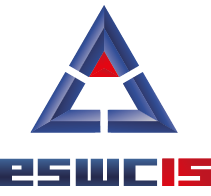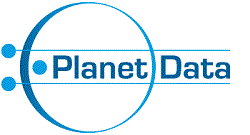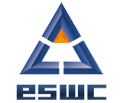The PlanetData project aims to establish a sustainable European community of researchers that supports organizations in exposing their data in new and useful ways. PlanetData pushes forward the state-of-the-art in large-scale data management and its application to the creation of useful, open data sets. This is motivated by the increasing reliance of business on large public data; the uptake of open data principles in many vertical sectors; and the need of research communities to make sense out of petabytes of scientific data, to describe and expose this data in ways that encourage and enable collaboration.
Sponsors and Supporters
Diamond Sponsors
Platinum Sponsors
Inria
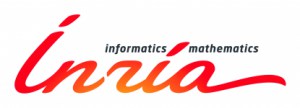
Inria is a public science and technology institution established in 1967. It is the only French public research body fully dedicated to computational sciences. Combining computer sciences with mathematics, Inria’s 3500 researchers strive to invent the digital technologies of the future. Educated at leading international universities, they creatively integrate basic research with applied research and dedicate themselves to solving real problems, collaborating with the main players in public and private research in France and abroad and transferring their results to innovative companies. Researchers at Inria published over 4,500 articles, supervised 322 PhDs in 2014 and were involved in 300 active patents and 120 start-ups.
Gold Sponsors
Annomarket
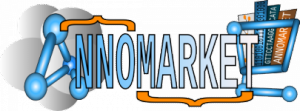
AnnoMarket.com is a new online marketplace for text analytics services, enabling anyone from large organisations to SMEs and individuals to buy and sell high-quality text processing services. The platform is entirely cloud-based and users pay for everything on a cost-effective, pay-as-you-go basis.
AnnoMarket provides a wide and growing selection of text analysis pipelines that you can use via simple REST APIs for either on-line or batch processing of documents.
Come and visit the stand to learn more and pick up a free credit voucher worth up to 10,000 API calls.
LDBC: Linked Data Benchmark Council
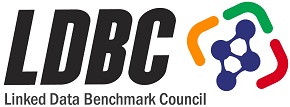
Non-relational data management is emerging as a critical need for the new data economy based on large, distributed, heterogeneous, and complexly structured data sets. This new data management paradigm also provides an opportunity for research results to impact young innovative companies working on new RDF and graph data management technologies to start playing a significant role in this new data economy. Standards and benchmarking are two of the most important factors for the development of new information technology, yet there is still no comprehensive suite of benchmarks and benchmarking practices for RDF and graph databases, nor is there an authority for setting benchmark definitions and auditing official results. Without them, the future development and uptake of these technologies is at risk by not providing industry with clear, user-driven targets for performance and functionality. The Linked Data Benchmark Council (LDBC) project is creating the first comprehensive suite of open, fair and vendor-neutral benchmarks for RDF/graph databases together with the LDBC foundation which will define processes for obtaining, auditing and publishing results. The core scientific innovation of LDBC is therefore to define meaningful benchmarks derived from a combination of actual usage scenarios combined with the technical insight of top database systems researchers and architects in the choke points of current technology. LDBC brings together a broad community of researchers and RDF and graph database vendors to establish an independent authority, the LDBC foundation, responsible for specifying benchmarks, benchmarking procedures and verifying/publishing results. The forum created will become a long-surviving, industry supported association similar to the TPC. Vendors and user organisations will participate in order to influence benchmark design and to make use of the obvious marketing opportunities.
LinkedTV

As Television and the Web converge – television content is transmitted digitally, possibly over IP, to devices which are equally Web capable, while Web content includes audiovisual streams consumed over connected devices in the same manner as classical television – we note that the actual meaning of ‘television’ changes. On a connected device, (broadcast) television content, other audiovisual content and other Web content may be consumed in parallel or sequence, and the fact that something is ‘television’ or ‘Web’ blurs in the consumers’ awareness. Is YouTube playing on a SmartTV now television? Is a catchup TV stream on the laptop still television?
Linked Television is a vision of future television consumption. Here TV and Web content is seamlessly interlinked, for example while watching the news the viewer is getting background information on the stories at their fingertips; it’s seeing a painting in a TV program and being able to identify the artist and the museum where it hangs. It’s facilitating what the Second Screen generation is already doing, but now bringing this within the same digital ecosystem, so that content owners retain the connection with the viewer and control about the information being linked with their media.
MediaMixer
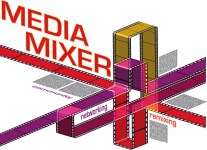
MediaMixer is an EU funded action to support organisations in enhancing their media contents to create greater value and extending reach across customers, consumers and the media value chain. MediaMixer
promotes semantic multimedia fragment technologies which can be used by enterprises to fragment their media assets, annotate those fragments and use these annotations for more flexible media retrieval and re-use in new contexts.
Ontotext

Ontotext provides a complete set of semantic technology transforming how organizations identify meaning across massive amounts of unstructured data. Ontotext blends text mining, powerful SPARQL queries, semantic annotation and semantic search with an RDF graph database (GraphDB™) that infers new meaning at scale. Today, Ontotext is used to power the world’s largest media websites and supports knowledge management applications using tens of billions of semantic facts. Ontotext’s Dynamic Semantic Publishing platform provides solutions for news, eLearning and scientific publishers. The Ontotext Insights platform addresses the needs of the life sciences market including pharmaceuticals, health care and insurance. Additional solutions are available for financial services, government, museums and archives. Ontotext technology delivers highly relevant search results for improved decision making – all in real time. Ontotext also provides S4 – The Self Services Semantic Suite - allowing developers to build text mining and semantic applications in the cloud. S4 includes text mining, reliable access to Linked Open Data for entity enrichment, GraphDB™ and developer tools. S4 is available in a hosted environment with a pay-as-you-go model. To find out more about Ontotext visit www.ontotext.com
Prelida: Preserving Linked Data
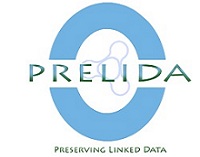
The PRELIDA project targets the particular stakeholders of the Linked Data community, including data providers, service providers, technology providers and end user communities. These stakeholders have not been traditionally targeted by the Digital Preservation community, and are typically not aware of the digital preservation solutions already available. Hence an important task of PRELIDA is to raise awareness of existing preservation solutions and to facilitate their uptake.
At the same time, the Linked Data cloud has specific characteristics in terms of structuring, interlinkage, dynamicity and distribution, that pose new challenges to the preservation community. PRELIDA organises in-depth discussions among the two communities to identify which of these characteristics require novel solutions, and to develop road maps for addressing the new challenges.
VideoLectures.NET
VideoLectures.NET is an award-winning free and open access educational video lectures repository. The lectures are given by distinguished scholars and scientists at the most important and prominent events like conferences, summer schools, workshops and science promotional events from many fields of Science. The portal is aimed at promoting science, exchanging ideas and fostering knowledge sharing by providing high quality didactic contents not only to the scientific community but also to the general public. All lectures, accompanying documents, information and links are systematically selected and classified through the editorial process taking into account also users' comments.
Silver Sponsors
BYTE
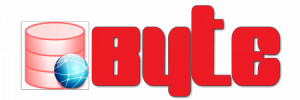
The Big data roadmap and cross-disciplinarY community for addressing socieTal Externalities (BYTE) project will assist European science and industry in capturing the positive externalities and diminishing the negative externalities associated with big data in order to gain a greater share of the big data market by 2020. BYTE will accomplish this by leveraging the BYTE advisory board and additional network contacts to conduct a series of big data case studies in actual big data practices across a range of disciplinary and industrial sectors to gain an understanding of the economic, legal, social, ethical and political externalities that are in evidence. BYTE will supplement these case studies with a horizontal analysis that identifies how positive externalities can be amplified and negative externalities can be diminished. BYTE will culminate in the launch of the big data community, a sustainable, cross-disciplinary platform that will implement the roadmap and assist stakeholders in identifying and meeting big data challenges. Furthermore, BYTE will disseminate project findings and recommendations and publicize the big data community to a large population of stakeholders to encourage further innovation and economic competitiveness in Europe’s engagement with big data.
STI Innsbruck
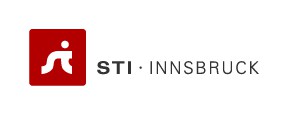
The Semantic Technology Institute (STI) Innsbruck, formerly known as DERI Innsbruck, was founded by Univ.-Prof. Dr. Dieter Fensel in 2002 and has developed into a challenging and dynamic research institute with a special focus on the Semantic Web, Semantic Web Services and Service-Oriented Architectures. STI Innsbruck has successfully completed more than 70 national and EC-funded projects, thereby fundamentally shaping the development of the Semantic Web as we know it today. STI Innsbruck collaborates with an international network of institutes in Asia, Europe and the USA, as well as with a number of global industrial partners.
STI Innsbruck is a founding member of STI International, a collaborative association of leading European and world wide initiatives, ensuring the success and sustainability of semantic technology development. STI Innsbruck utilizes this network, as well as contributing to it, in order to increase the impact of the research conducted within the institute.
Video Recording Sponsors
xLiMe

xLiMe proposes to extract knowledge from different media channels and languages and relate it to cross-lingual, cross-media knowledge bases. By doing this in near real-time we intend to provide a continuously updated and comprehensive view on knowledge across media.
In the first project year we focused research efforts on combining speech recognition, natural language processing, computer vision and semantic technologies to:
- extracting machine-readable knowledge from multilingual, multimedia and social media content and integrate it with cross-lingual, cross-media knowledge bases,
- searching this knowledge with structured and unstructured queries in near real-time.
In regard to real-world applications we focused on
- augmenting selected TV news channels in different languages with up-to-date information from social media and news in near real- time and
- monitoring of news related to certain brands across social media and TV.
For all project-related information as well as first prototypes please visit us at www.xlime.eu and on Facebook „XLiMe project“.
